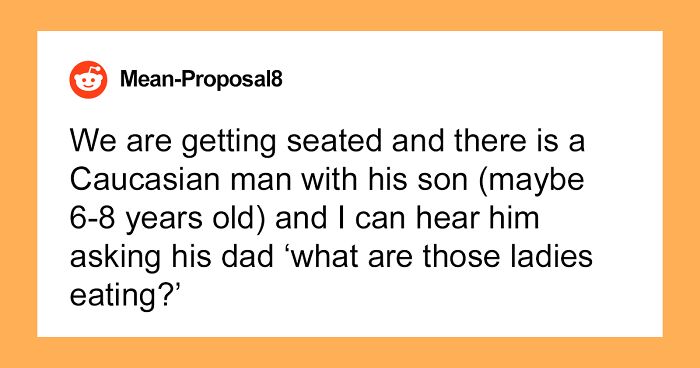
“This Isn’t A Zoo”: Asian Woman Throws A Dramatic Fit At A Chinese Restaurant
Interview With ExpertRestaurants can be overwhelming, especially for a highly sensitive person. They tend to process everything much more deeply, including feelings, thoughts, details, and physical sensations. So when others are experiencing their surroundings at a volume of 5, they are blasted with a loudness of 10. And in these noisy and jam-packed spaces, something is bound to go wrong.
For redditor Mean-Proposal8’s friend Jess, it was a curious kid who pushed her over the edge. Unexpectedly, she stood up, insulted the child and his father, and walked out. Trying to console her, Mean-Proposal8 suggested she go back to therapy, as she has dealt with similar difficulties in the past. In return, Jess called her a bad friend and left.
Scroll down to find the full story and a conversation with trauma therapist Vanessa Pezo who kindly agreed to tell us about healthy support mechanisms for someone in panic or anxiety mode.
Noisy and busy restaurants can be overwhelming
Image credits: cottonbro studio (not the actual photo)
For Jess, it was a little kid who pushed her over the edge
Image credits: meijii (not the actual photo)
Image credits: RDNE Stock project (not the actual photo)
Image source: Mean-Proposal8
Helping someone in state of stress, anxiety or overload
Image credits: Alena Darmel (not the qactual photo)
Trauma therapist provides insights on what could’ve triggered Jess’ reaction
Bored Panda reached out to trauma therapist Vanessa Pezo, who kindly provided her insights on the situation.
We were curious to know if Jess could’ve been triggered by something that was related to her past trauma from racist verbal attack. She told us “When we experience a traumatic event, like a verbal racist attack, our mind will store this memory and the things associated with it as potential sources of danger. Our mind does this because it is designed to protect us from threats and danger in service of our survival.
Later on these pieces of information become triggers. Triggers activate automatic stress responses like fight, flight, freeze, and fawn. For example, if I was walking down the street and a person wearing a red jacket began to yell racist threats at me I could experience triggers related to this in the future. Perhaps walking down that same street would now be a trigger, or maybe seeing someone in a red jacket could become a trigger.
I could also be triggered if I heard similar words or a similar tone of voice being used. It is not possible to know exactly what will become a future trigger. It often takes time to understand what triggers us and why. Some triggers can be quite clear such as being triggered by driving after a bad car accident. Others are not so obvious. This becomes even more complex when someone has experienced multiple traumatic events, especially stemming in their childhood. ”
However friends advice to go back to therapy might’ve been a very questionable move. Pezo notes that if someone is experiencing mental health challenges it is important that we support them in ways that meet their individual needs.
“Often, people like to give advice or tell others what to do thinking this will “fix” their problem. However, telling others what to do can be highly invalidating. Instead, you might offer an observation of what you have been noticing as a way of checking in. For example, “I notice you seem stressed lately. Are you okay?” If the person does choose to share with you it is important to first be a supportive listener which means being present and not jumping into “fix-it” mode. We can also ask if there is anything we can do to help, but shouldn’t assume we know what someone else needs or what they should do. ”
Equipping ourselves with support mechanisms for someone who is in overload or panic mode
Some of us aren’t really equipped with support mechanisms when it comes to dealing with overwhelmed, panicky, or anxious people. What helps each person can differ, but there are a few techniques that typically come in handy in such situations.
Pezo advises to stay calm and collected. “Human being are designed to co-regulate. If someone is overwhelmed, anxious, or panicky they benefit from being in the presence of someone who is calm, grounded, and supportive. This means first attending to your own state so that you don’t add your own anxious energy into their already overwhelmed state.
Being a supportive presence can mean listening to someone, guiding them in taking a few deep breaths, going on a walk, or just being there. Your presence and the energy you bring often matters much more than saying the right thing. Also remember, telling someone “calm down” has never once worked to calm someone down. ”
She concludes by saying “When they are out of crisis mode doing activities together that support emotional regulation and nervous system health can be a huge help. Try going on walks, taking a yoga or meditation class, hiking or going out into nature, making art or other things you both find enjoyable and restorative. The best healing happens in relationships with other people. ”
Majority of commenters didn’t see anything wrong with the author’s actions
Poll Question
Thanks! Check out the results:
Jess has got a little way to go yet (I'm not surprised after what she experienced) luckily she has good friends to support her.
NTA. People, especially children, tend to get curious if you eat something that looks unusual to them. It has nothing to do with race, Jess made the connection herself.
Having to deal with racism can make you very sensitive about the possibility that someone is talking about you in a negative way. Jess overreacted, but I can kind of understand having trust issues with strangers.
Jess has got a little way to go yet (I'm not surprised after what she experienced) luckily she has good friends to support her.
NTA. People, especially children, tend to get curious if you eat something that looks unusual to them. It has nothing to do with race, Jess made the connection herself.
Having to deal with racism can make you very sensitive about the possibility that someone is talking about you in a negative way. Jess overreacted, but I can kind of understand having trust issues with strangers.

 Dark Mode
Dark Mode 

 No fees, cancel anytime
No fees, cancel anytime 



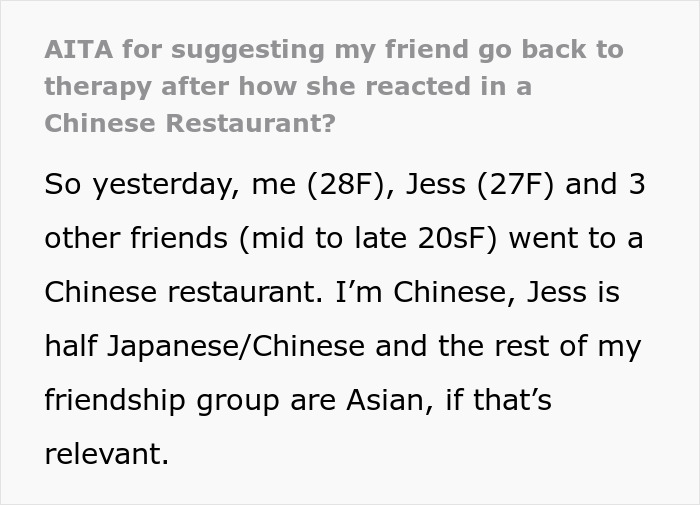
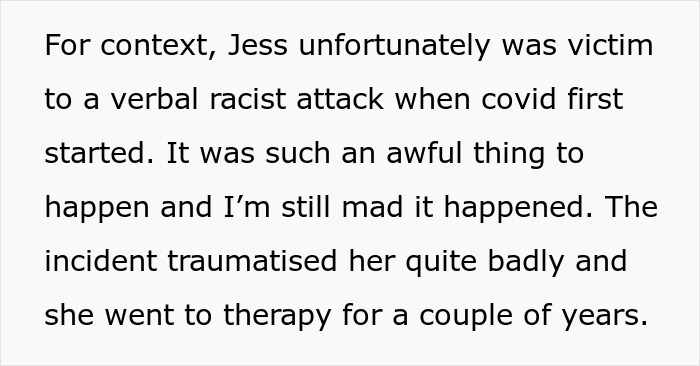
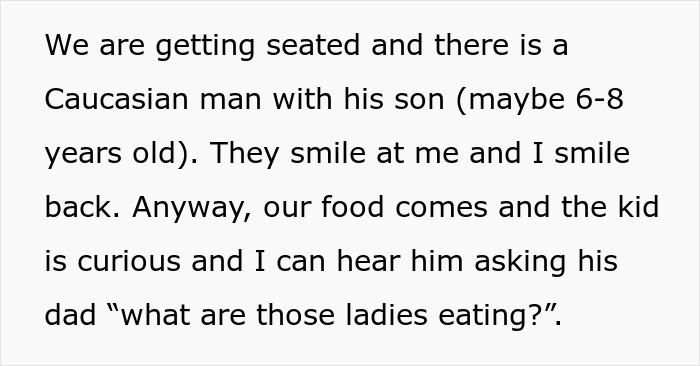
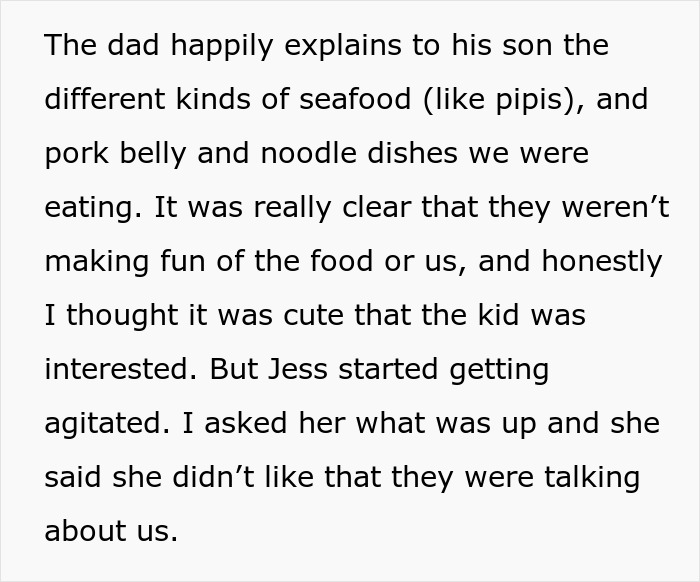
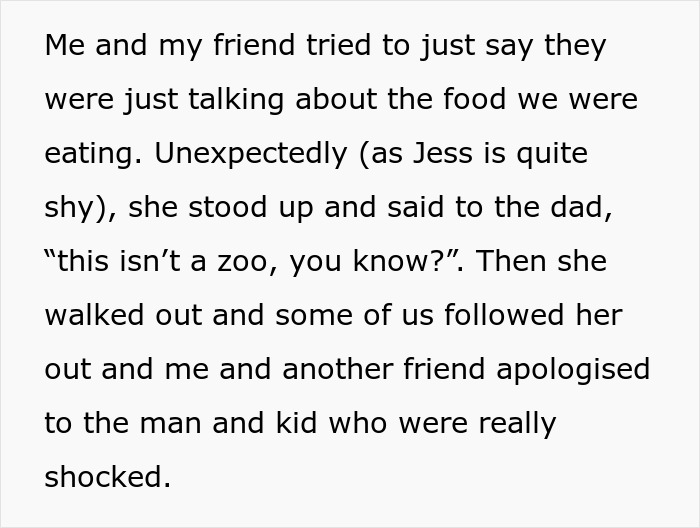
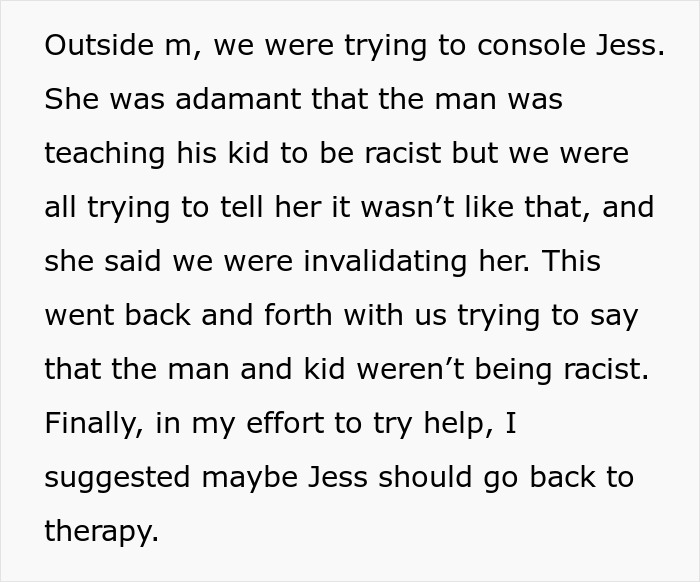

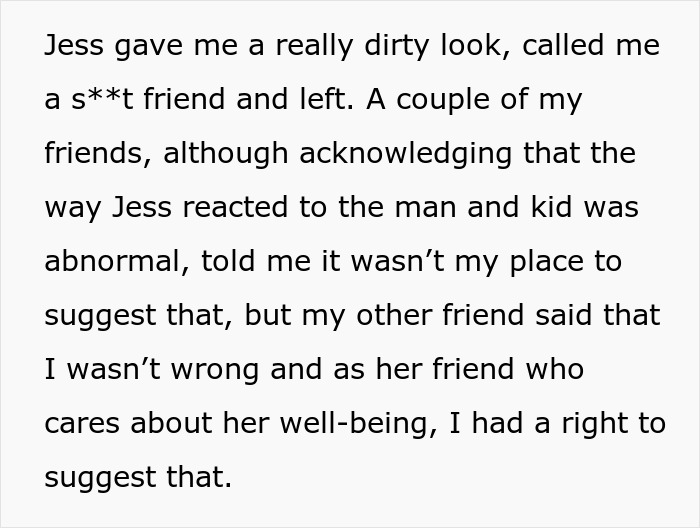

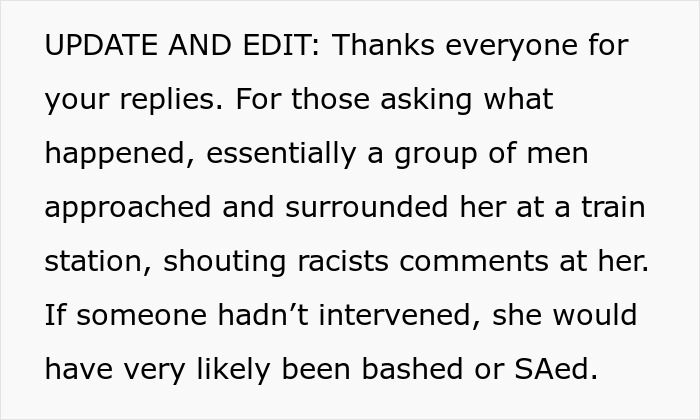
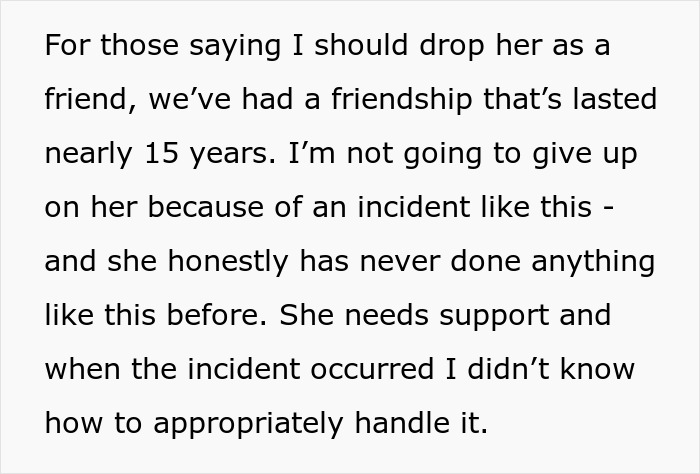
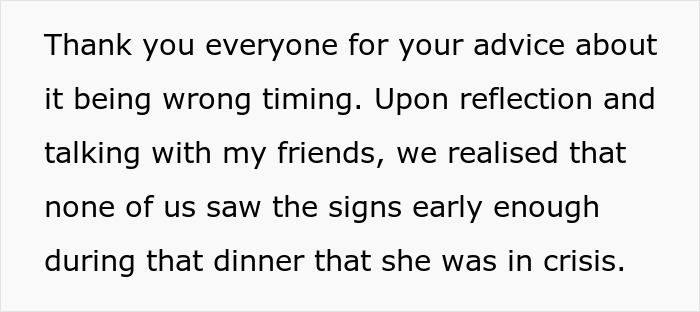
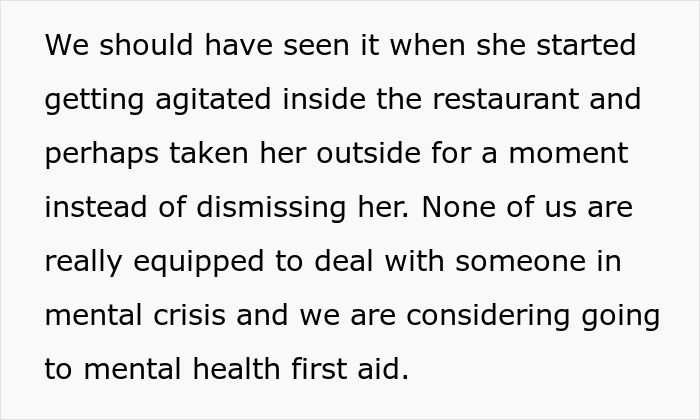

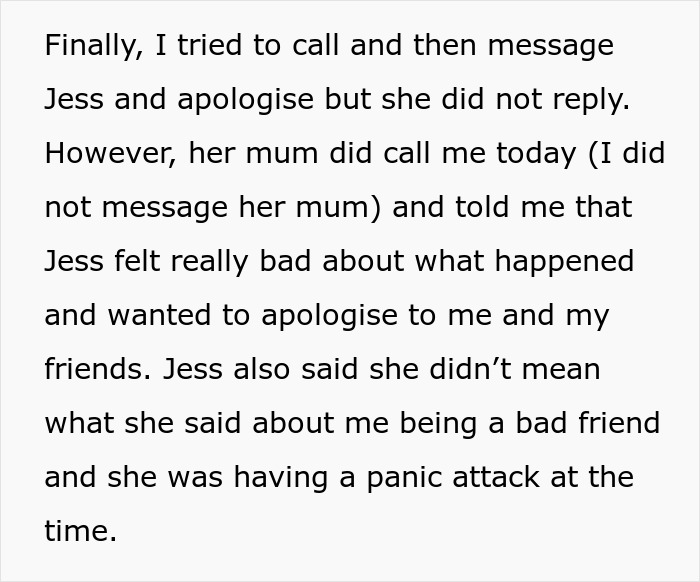
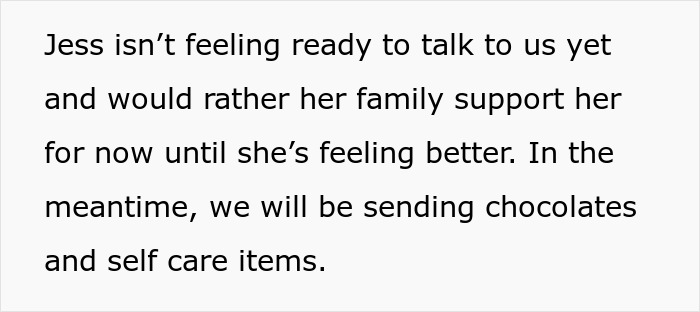
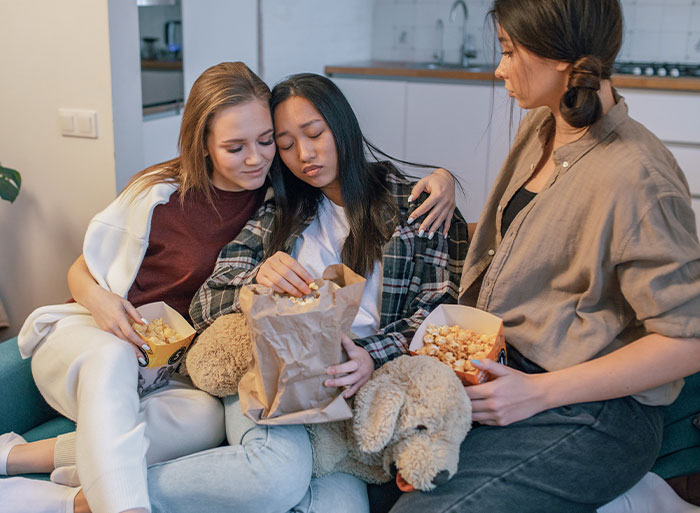
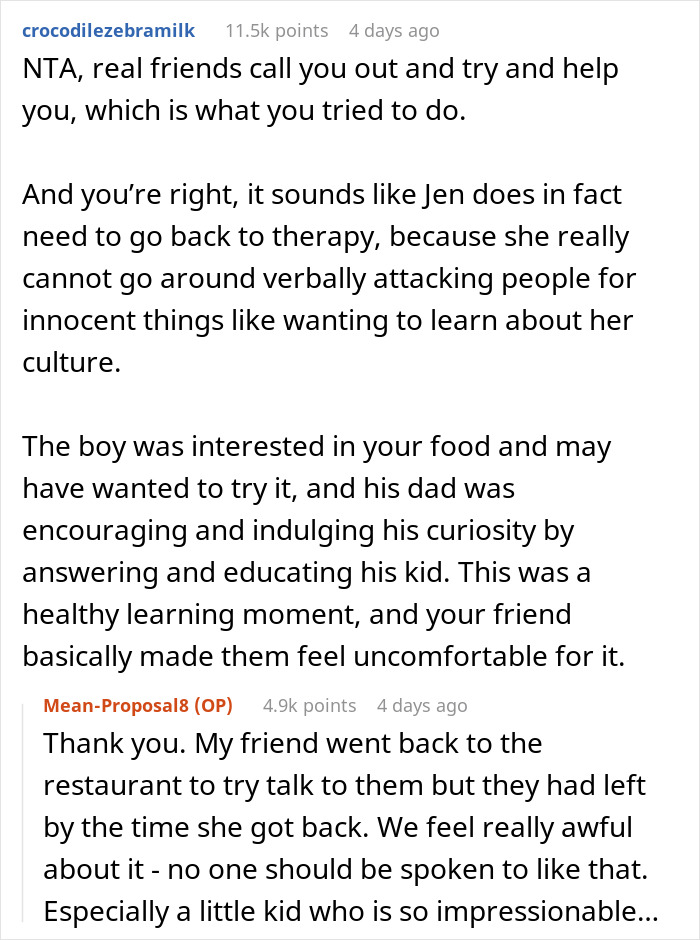
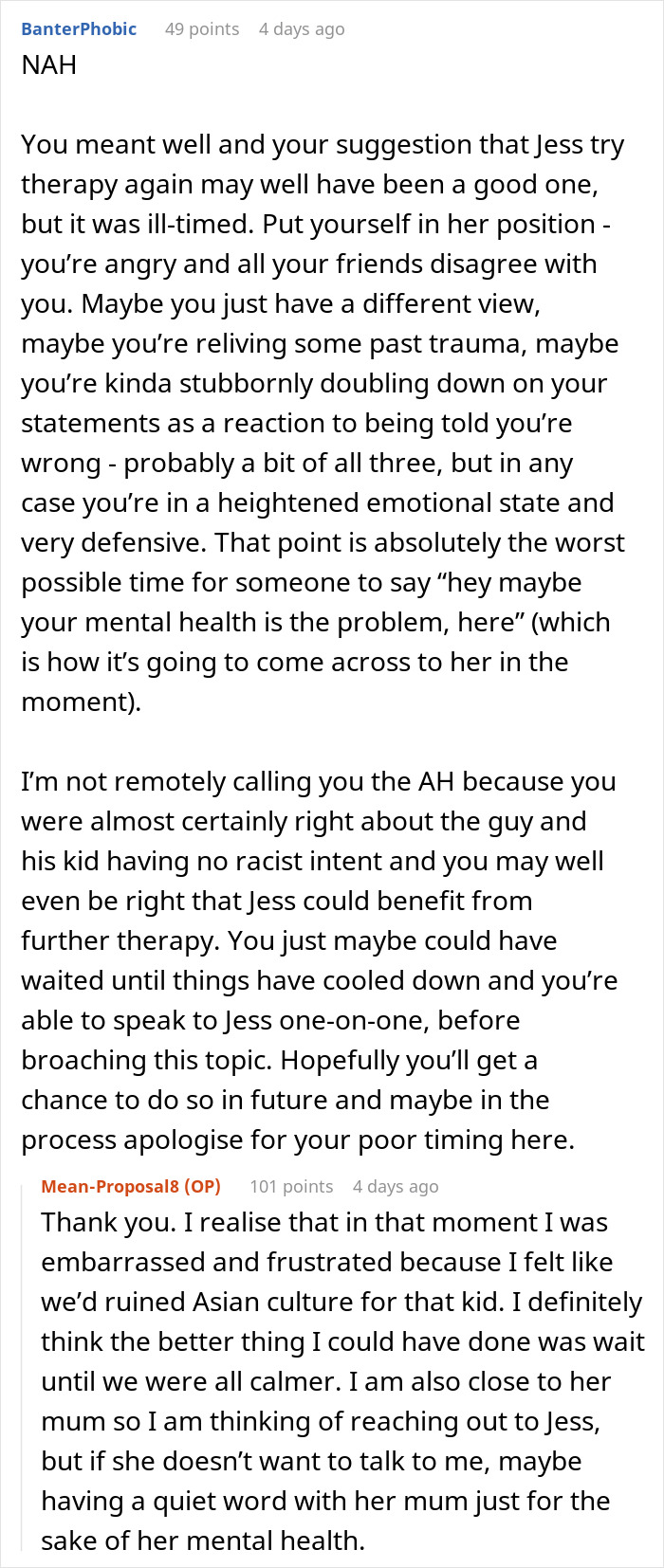

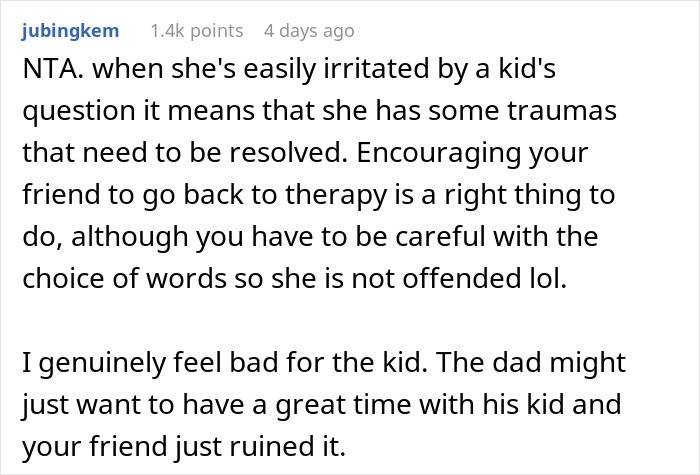

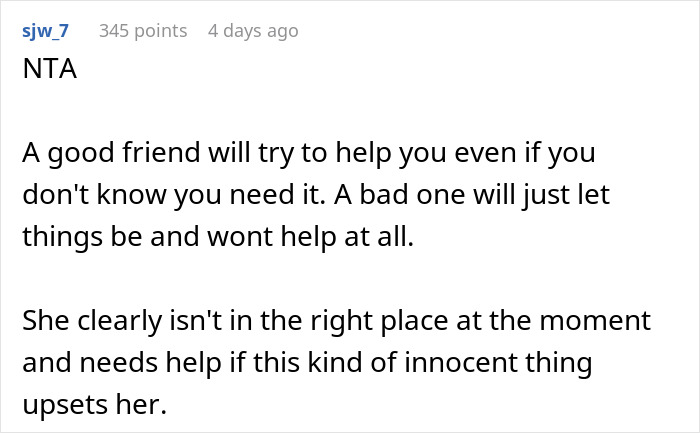
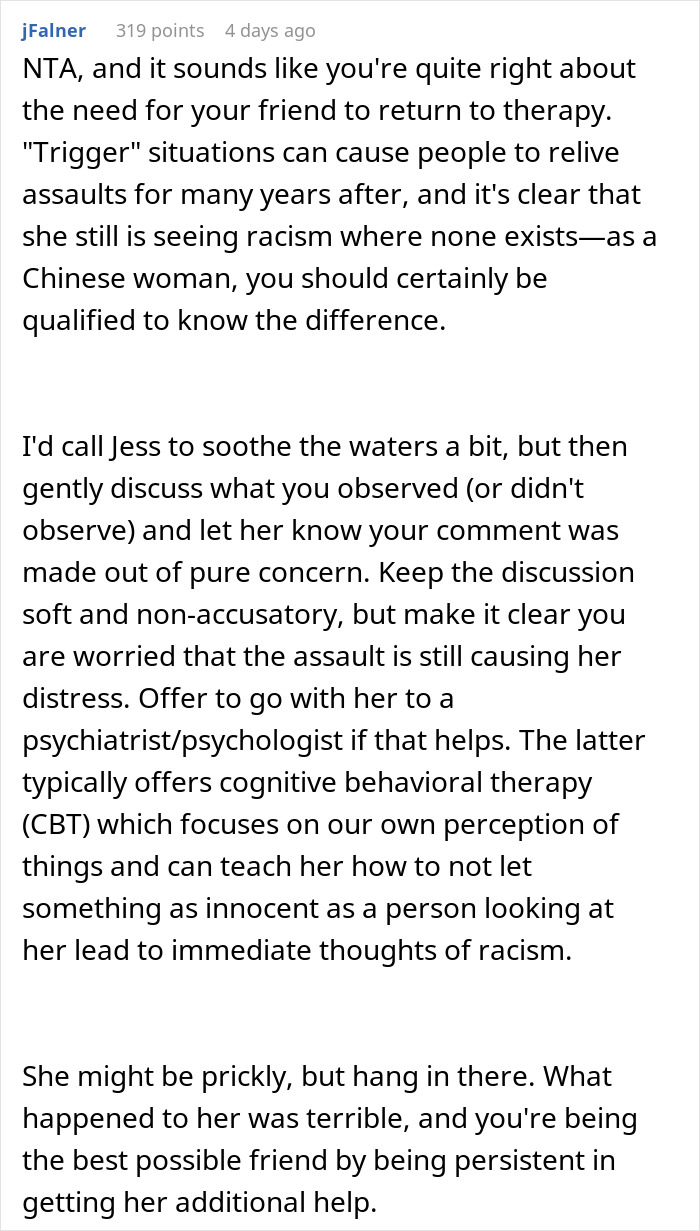
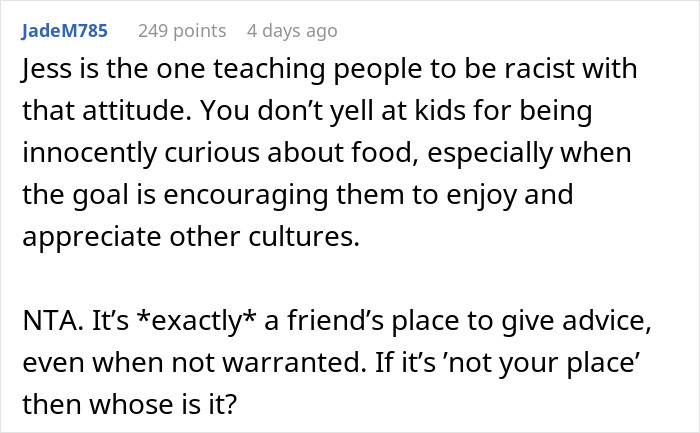
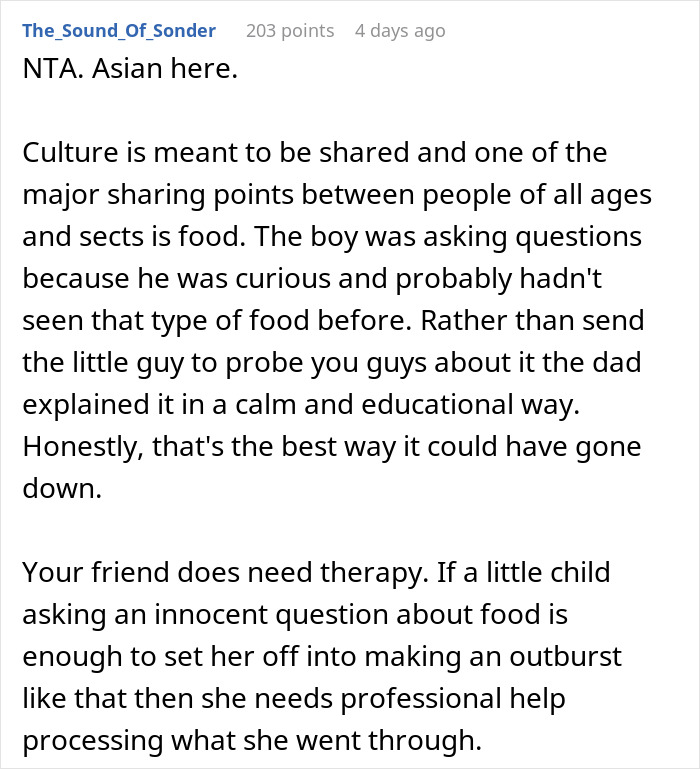
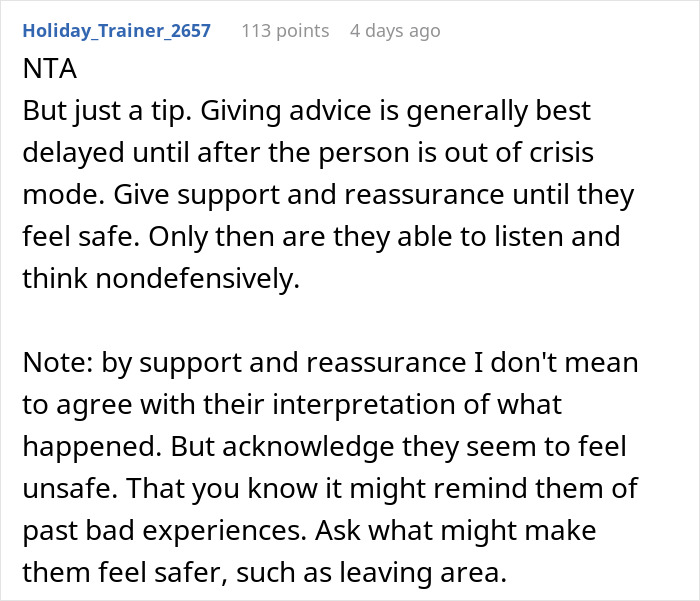

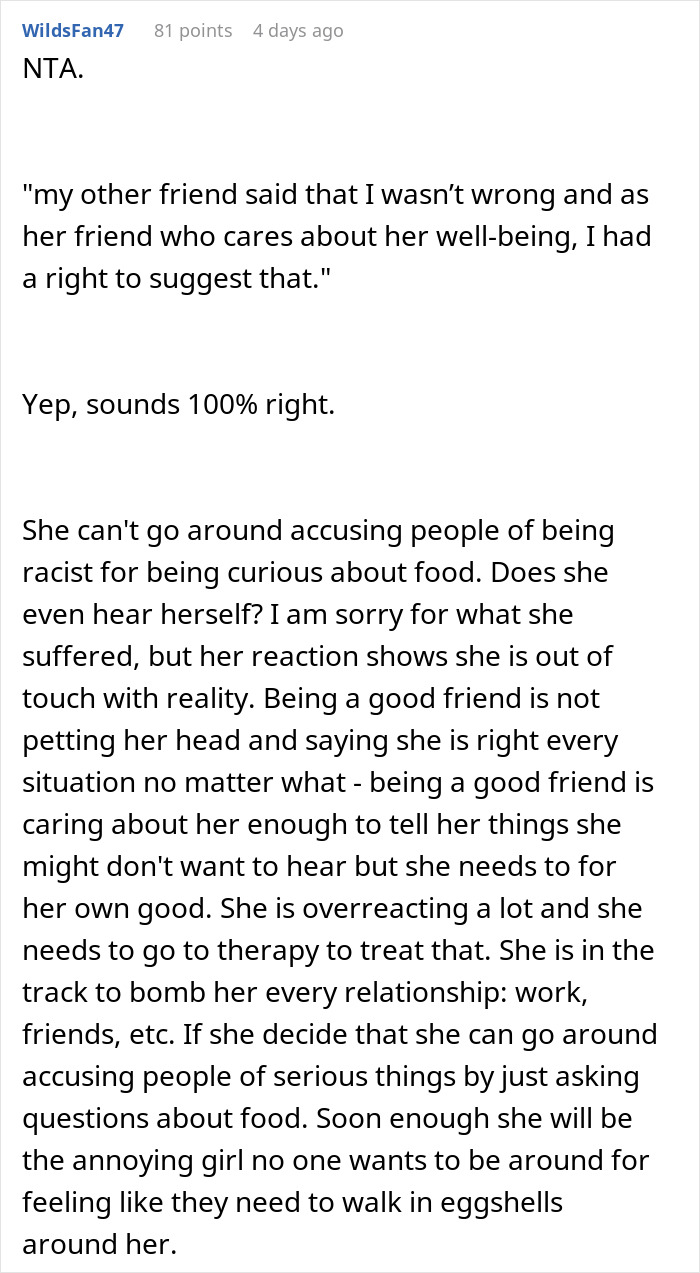

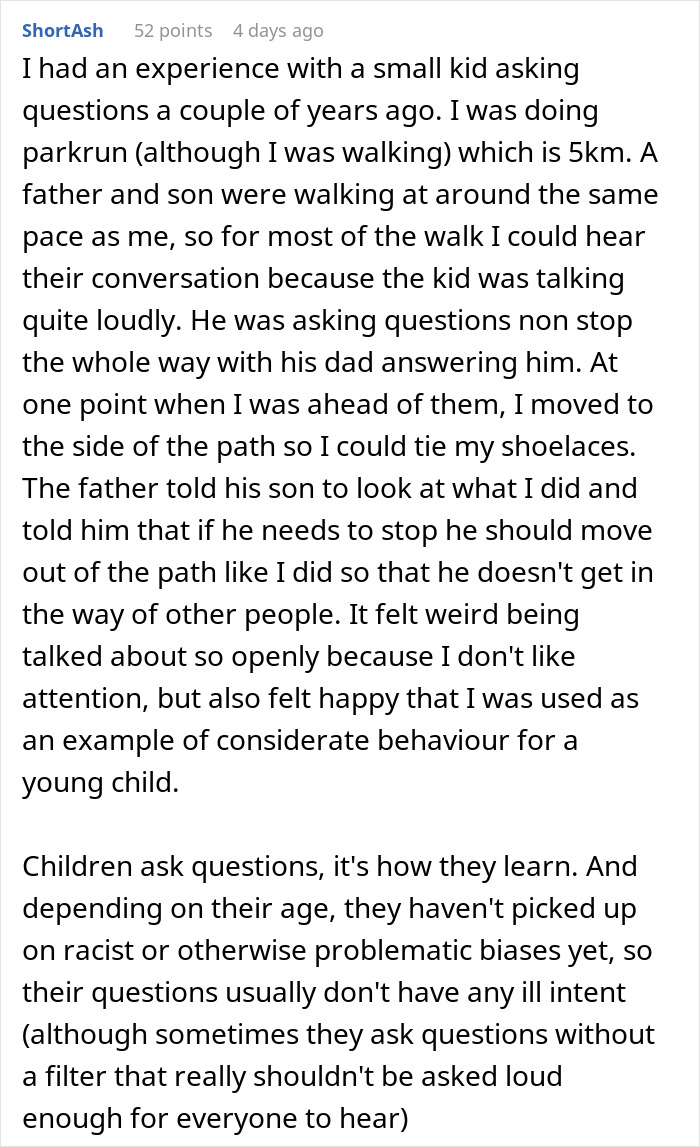
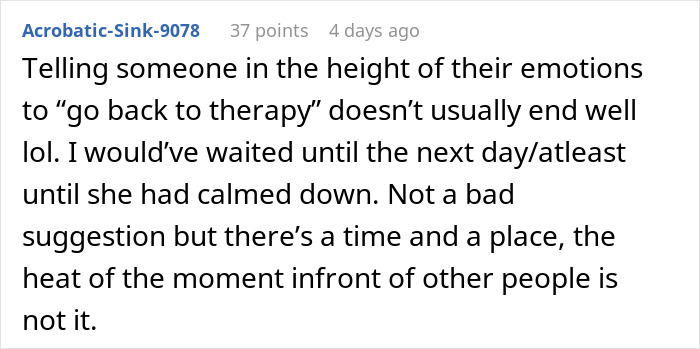












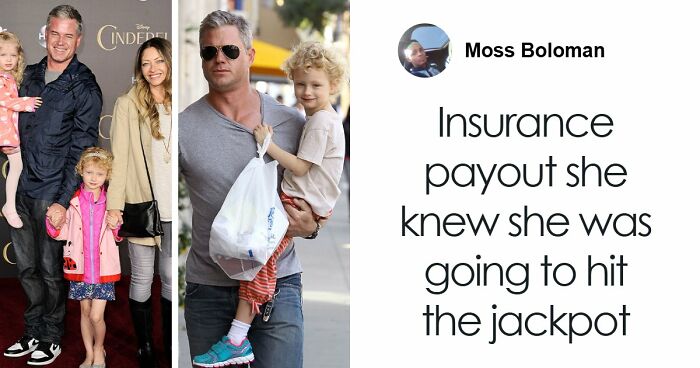






























22
19